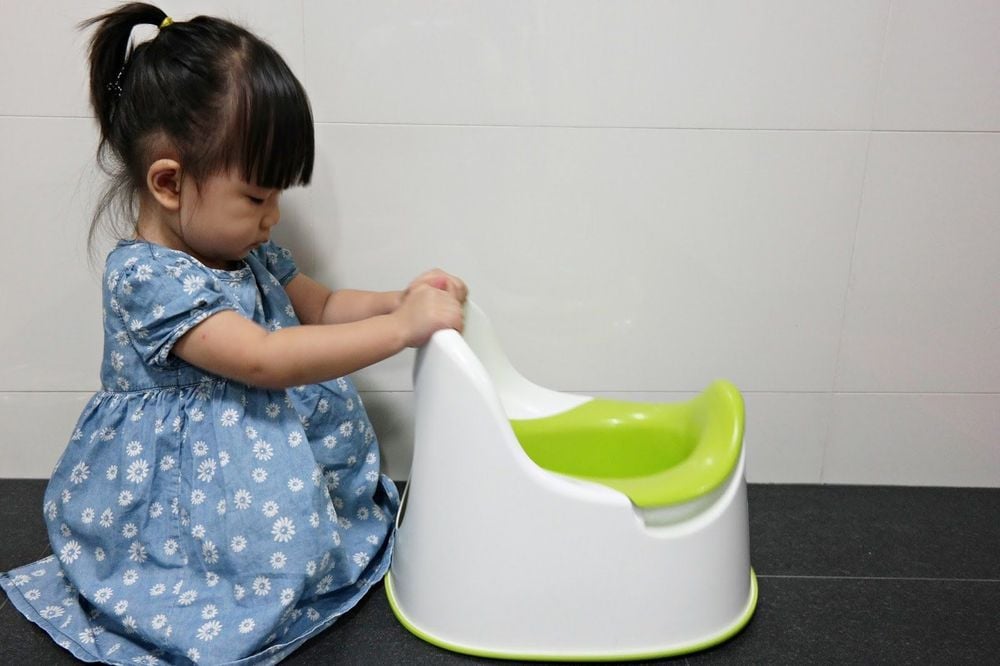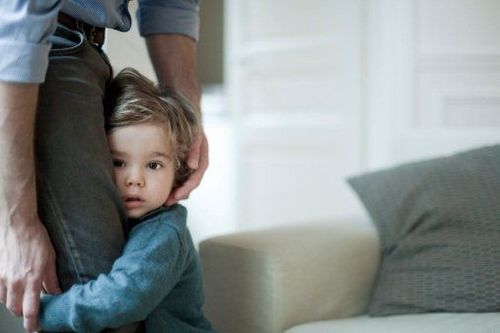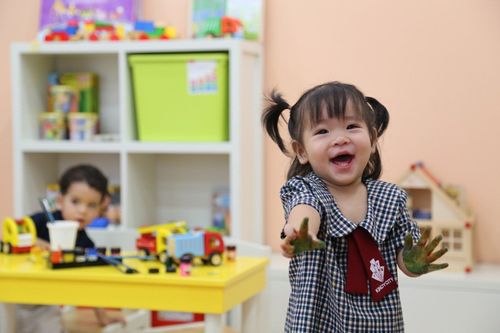This is an automatically translated article.
The article was professionally consulted by Dr. Le Thu Phuong - Department of Pediatrics - Neonatology - Vinmec Hai Phong International General Hospital.At preschool age, children often have their own fears, some are afraid of going to school, some are afraid of not having anyone to play with. Why do children have such fears, and how can we help them overcome these fears?
1. Why preschoolers worry about school
Not only children, but even adults are difficult to change. Think about how you feel the night before you start a new job, and then think about how many new things your child must face when starting kindergarten or moving into a new classroom. .Patricia Henderson Shimm, associate director of Barnard College's Center for Child Development, in New York City, says: “Preschoolers have a lot of fear. Because there they often do something they haven't done before."
In addition to crying when retelling classroom stories to parents, a child's preschool fear can keep them up at night. (or sleeping more than usual), some children may suddenly exhibit aggressive behavior
Preschool children can know exactly what they are afraid of such as: falling on the school playground, or having to use unfamiliar restrooms, or they just feel scared about school and can't tell you why
Either way, a few simple strategies will help your child feel more comfortable with new experiences ahead:
Encourage your child to talk: Encourage your child to open up about what worries your child. Imagine coming and going: Have your child take a round of hide and seek or slide cars in and out of the toy train tunnels. Then use the game as a launch pad to talk about how the cars will always come back. when they go somewhere, it's like going to school and then coming back home.
You can also set an example by gently relating your own fears: "Sometimes I feel scared when I meet someone new, but anyway I try to be brave. and say hello."
Don't hold back your child's emotions: It's natural that you want to comfort your child by saying, "Don't worry, you'll make many friends in preschool". But this can actually make him feel more threatened, as it sends the message that you expect him to be more mature. Instead, let your child know that you sympathize with his anxiety. You might say, "Going to a new school is scary, isn't it?". "How can we make it easier?". And, of course, never give your child the impression that you think his worries are silly or trivial.
Let your child take the initiative: Since preschoolers may react against their parents' suggestions, involve them as much as possible in finding solutions to their fears. In the end, he's more likely to try a strategy the child has come up with. For younger or quieter preschoolers, come up with some possible "fixes" to their dilemma, then ask them which way they think could be more effective.
2. The most common fears in preschool and how to alleviate them

However, don't panic or feel bad about your baby crying. The truth is, your baby's tears don't mean she doesn't like her new school. In fact, he might soon love it, just doesn't want to be there without you.
Preschoolers are still young enough to tolerate separation anxiety, and yet old enough to have some sense of time. So your child knows that you won't be back any time soon, and that's hard to deal with.
The first and perhaps hardest thing you have to do is leave, as calmly as possible. Hold her tight, tell her you'll pick her up after lunch or a nap, and then you need to get out of there, even if you hear crying behind you. If you feel a negative emotion coming, enlist the help of a teacher to involve your child in a game or activity, or simply sit with your child until the emotion passes.
Veteran teachers say the most common mistake parents make is rolling back or extending goodbyes until they turn into tearful separations. Instead, go out, tear yourself up, and call the teacher for an update an hour or two later. Chances are, you'll be comforted when the teacher notices that your child stopped crying as soon as you left and spent the morning playing with his new friends.
This also helps to find out from the teacher what your preschooler did that day and talk about it with him when he gets home. Anything you can do to emphasize the daily routine will help your child adjust to and allay his fears.
2.2. Preschoolers are naturally afraid of change, and one of the most difficult changes they face is learning how to use the new toilet. With so many preschools requiring children to be potty trained before entering school, using the restroom can become the focus of a lot of stress for both you and your child.
If you're panicking because your potty training deadline is fast approaching, take a deep breath, and it may be time to rethink your strategy. First, call the school, explain the problem, and find out how hard and fast the rule really is. You may find that schools do make exceptions, in which case, nominate your child as one of them.

An alternative is to put your baby in cotton underwear a few days before school starts, and hope for the best. Many kids have surprised everyone by skipping the toilet, at least for most of the time at school.
If it's the toilet your child dreads, ask if you can bring a potty seat for your child. If so, buy one exactly like the one she uses at home and keep it at school.
2.3.Children hate repetitive time For us, it can be fun, but for a shy preschooler, repetitive time can be torture.
"For months, Natasha kept saying she didn't want to go to school," said a mother of a 3-year-old. In the end, the mother found out that it was because the baby hated spinning time. The songs and stories were unfamiliar, and she was scared when the teacher called to talk.
The solution in this case was simple: The teacher let Natasha sit on the sidelines for a few weeks, and when she learned the routine, she happily joined in.
One way to help your child get through the focus of spinning time is to practice first. For example, on your way to school, you might ask, "What would you like to share today? Would you like to talk about a caterpillar you found?"
You can also ask the teacher for a list of songs your child sings in class, then buy songbooks or tapes for your child to learn at home. Knowing all the words of what's going on in the classroom can help children feel more comfortable participating.
2.4. Fear of getting lost If your child starts kindergarten or moves to another grade, he or she may worry about unfamiliar surroundings. Help your child feel more comfortable by visiting before school starts .
If your child hasn't met his teacher yet, introduce him and encourage him to participate in an activity or two. Help your child find a cupboard or hook for her to put her things and let her spend time playing with all the exciting new items. On the first day of school, you might say, "Hey, now you can go back and finish the game you played in class!"
Preschoolers often feel nervous about a new playground, especially if it feels big or something is difficult. To remedy this, visit the school yard after work so your child can climb onto his play equipment or ride his tricycle without the intimidating presence of other kids.
Another strategy is to pair a preschooler with an older friend. Of course, an older sibling is ideal for this, but you can also tap your friends and neighbors to find a confident 4-year-old who isn't afraid to show your child how they play at home. preschool.
2.5. Children are afraid of having no one to play with Preschoolers can get frustrated by a room full of strangers. To help your child be less shy, introduce him to as many of his future classmates when you visit the school.

If one of your child's friends goes to the same school or class, even better. Make the most of your friendship, ask the kids to hang out together, and emphasize that you'll both go to preschool together or move into a new classroom. If possible, arrange your schedule so that both kids arrive at the same time on the first day and can walk together.
As time goes on, keep snapshots of your child's school friends on the refrigerator or in his room and talk about them often. After all, preschool is a child's home away from home, and when children are there, these children are their extended family.
If in the process of going to school, your child has any signs of psychological instability, you should take your child to see a psychologist for advice and early treatment to avoid psychological problems. With extensive experience and professional knowledge, psychiatrists and psychologists at Vinmec psychological clinic have successfully diagnosed and treated many children with psychotic syndromes. management when attending kindergarten such as Separation Anxiety Disorder, School Phobias, Acute Stress... through non-drug psychological therapies updated in the world.
Signs need to take the child to the doctor:
complain of headache, dizziness when going to school (come home again) Crying or vomiting before each school day Stomach pain every morning waking up Startled by panic when sleeping Clinging to mother does not leave , worry about mother leaving, worry about mother having an accident,... Bedwetting or "pooping" (previously able to control urination) The child becomes taciturn, does not talk or laugh when he comes home The child sits alone When in class Children become aggressive, beat friends

If there is a need for psychological examination for children at Vinmec, please book an appointment directly at the website or contact the hotline for detailed advice.
Please dial HOTLINE for more information or register for an appointment HERE. Download MyVinmec app to make appointments faster and to manage your bookings easily.
Reference source: babycenter.com













